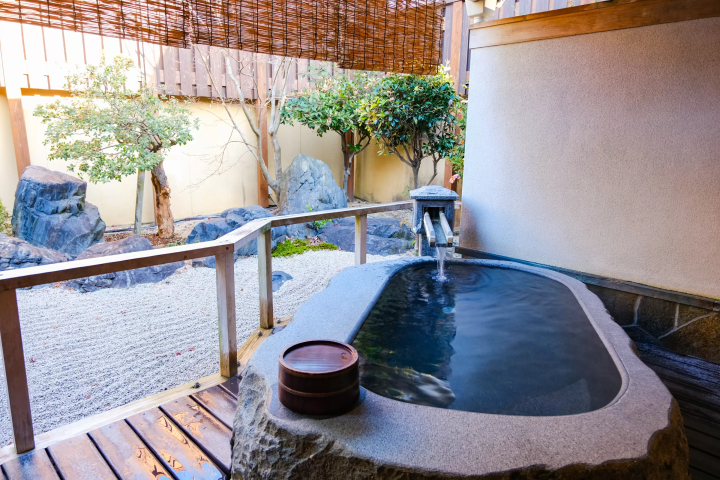Praising The Rain With Japanese Waka Poetry

Waka is a type of poetry in classical Japanese literature. It is often used to describe the poet's feelings about the changing seasons. Rainy season waka are plentiful and this article introduces you to some of these classic poems.
Waka: Classical Japanese Poetry
Waka is a type of poetry in classical Japanese literature. In fact, this literary work has a long history and was first recorded in the early 8th century.
Common themes include beautiful sceneries, colors of the ever-changing sky, a longing desire to meet someone, and hidden love. In this article, we'll focus on the sentimental beauty of the rainy season praised in the waka of ancient Japan.
Waka Rules and Techniques
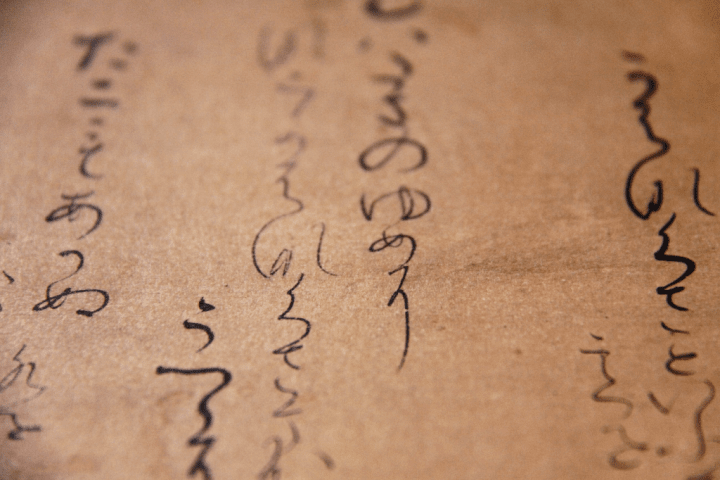
Picture from Japanese Shodo - Artistic Calligraphy Passed Down for Generations (Japanese)
Waka follows the syllable pattern of 5-7-5-7-7. While it originates from Chinese poetry, waka eventually evolved into its Japanese form. Moreover, waka literally means "Japanese Poem."
Within the limitation of 31 syllables, waka is often used to express emotions and feelings. Some poems describe a nature scene while others written by the aristocracy functioned in place of love letters.
Waka and the Rainy Season
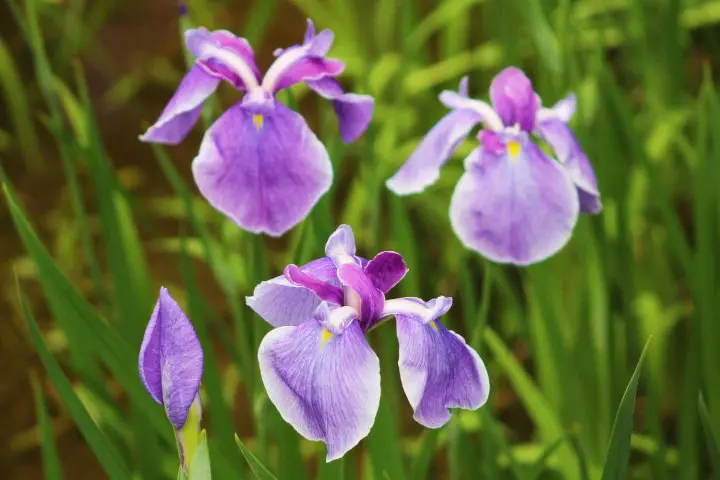
Photo by Pixta
Waka has been used to describe the marvels of nature since this poetry style emerged. While the rainy season might sound depressing, it is brimming with a unique kind of beauty that is an essential theme in many types of Japanese poetry.
The word for “rain” in waka changes depending on the season. This includes the type of rain and how the poet feels when watching the raindrops. In Japanese, “rain” can be described in over 100 words. Some examples are "samidare" meaning “early May rain,” "suiu" describing the “rain on young leaves,” "kirisame" or “foggy rain," and "shigure" referring to “sudden autumn rain.”
Waka Drawing Inspiration From the Rain
Now, let's have a look at some waka that describe the beauty of rainfall in Japan.
1. A Scenery Poem
Shin Kokin Wakashu by Yoshitune Fujiwara
Ayame zo kaoru
Hototogisu
Nakuya Satsuki no
Ame no yuugure
In English:
The air is damp with humidity, and lilies release their fragrance.
A cuckoo cries out on a rainy afternoon in May.
This summer poem expresses the sounds and smells of a humid summer evening. As the sky gets darker after rainfall in the afternoon, the senses sharpen, and you can smell and hear your surroundings more intensely.
Lilies and cuckoos are important keywords to describe the early summer days. You can visualize the lilies hit by the rain but still blooming proudly while the cuckoo's cries fade into the dark summer sky.
2. A Rainfall and Love Poem
Izumi Shikibu Diary by Lady Izumi Shikibu
Ookata ni
Samidarurutoya
Omouramu
Kimi koiwataru
Kyo no nagamewo
In English:
You probably think this is just another early summer rain.
But this long rain is the tears that arise thinking of you.
It is a novel idea in ancient Japanese art to describe the feelings of love with the rain. This passionate poem expresses the pain of not being able to meet one's love due to the long-lasting rain.
In this poem, the word “nagame” has two meanings: "long rain" and "being absorbed in thought." The word “samidaruru” also has two meanings: one is "early summer rain," and the other is "one’s disturbed feelings."
The Japanese language has many homonyms (words with more than one meaning). As for waka, the written word will usually have only one meaning. The hidden meaning is left to the reader's imagination and depends on the pronunciation of the words.
The sound of the Japanese words is an important factor in reading waka. The rain in waka can be a hidden love confession of the writer. However, this meaning can easily get lost in translation.
3. It's Raining, Please Stay Poems
Ukeragahana by Chikage Tachibana
Wagayado ni
Ametsutsumiseyo
Samidare no
Furinishikotomo
Katari tsukusan
In English:
If you can’t go out anyway, please stay at my house, forever.
In this rainy season rain, let us talk about old stories to our hearts’ content.
Manyoshu by unknown authors
Narukami no
Sukoshi toyomite
Sashikumori
Ame mo furanuka
Kimi wo todomen
In English:
I wish there would be a little crack of thunder, it would become cloudy and start to rain.
This way I could keep you from leaving.
Both poems imply the wish that someone doesn't leave. The rain signifies how many people stay inside during this season.
The second poem is about delicate love—the kind that you cannot profess out loud. It is easy to empathize with this poem if you are in love, regardless of gender, age, or nationality.
By the way, a reply to this poem exists. Take a look at “Manyoshu” if you’re curious.
Waka: A Glimpse Into the Japanese Heart
Sadly, the habit of reading waka poems has become less common in present-day Japan. It's customary, however, for Japanese children to learn them at school and they are sometimes even quoted in the Japanese media.
The most famous poems are admired across the ages and preserved in anthologies like the “Manyoshu” and “Kokin Wakashu,” or in stories such as “Tales of Genji” and “The Izumi Shikibu Diary.” The more you get to know them, the more you will be fascinated by the world of waka.
Waka might be difficult, but why not try challenging yourself to read some Japanese poems during the long rainy season?
Reference: http://www.shodo.co.jp/blog/miya/2009/06/post-137.html (Japanese)
Main image by Pixta
This is the official account of MATCHA's editorial department. Our articles feature useful travel information for visitors to Japan, from how-to guides to recommended places to visit.
























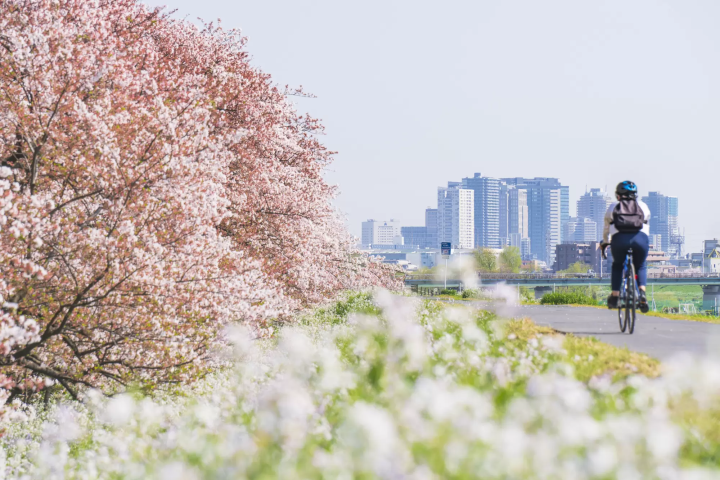

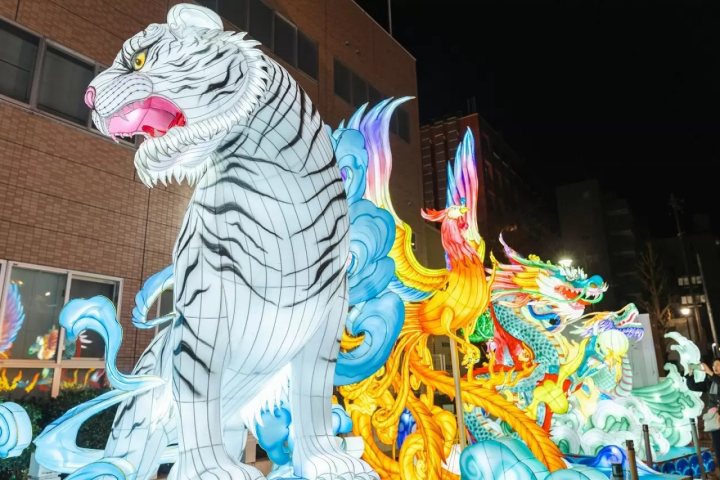
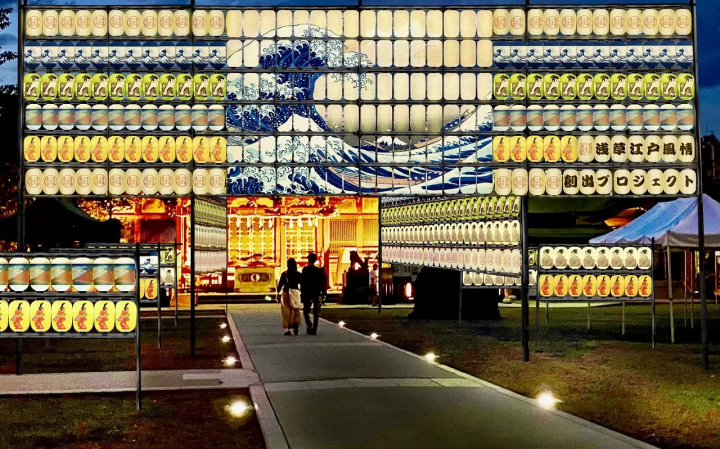

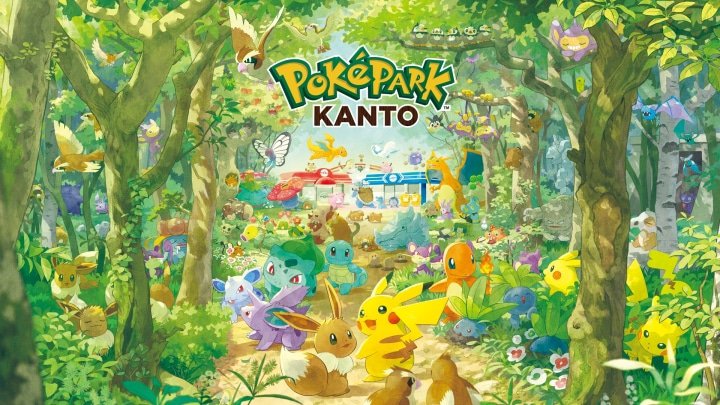




![[Nara/Horyu-ji Temple] A one-day tour to learn about the world's oldest wooden building, Horyuji Temple](https://resources.matcha-jp.com/resize/720x2000/2024/05/13-179715.webp)
![[ Naruto City, Tokushima Prefecture ] Experience the world's largest whirlpools up close on a sightseeing boat at the Spring Whirlpool Festival!](https://resources.matcha-jp.com/resize/720x2000/2025/02/05-222727.webp)
![[Supervised by TripToJapan] Perfect for spring! 3 tours you should join in Osaka!](https://resources.matcha-jp.com/resize/720x2000/2026/01/19-256036.webp)
![[2026 Edition] 8 Famous Cherry Blossom Spots in Maizuru City , Kyoto Prefecture ! Introducing Popular and Hidden Gems](https://resources.matcha-jp.com/resize/720x2000/2026/01/06-254882.webp)
